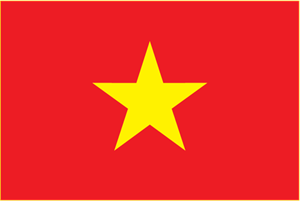- Home
- PRODUCTS
- TECHNOLOGY
- electrical-drives
- drive-technology
Direct starting and star-delta starting of an asyn
Objectives
- Mains feedback with direct start with and without load
- Mechanical load of the driven working machine
- Optimisation of the star-delta start
- Determining the switching time of an automatic star-delta circuit
- Measurements are performed by the Machine Test CASSY.
The following parameters are determined:
- Starting current
- Optimum starting time for automatic star-delta start
- Starting torque
- Tilting torque
- Nominal torque
- Maximum acceleration
Highlights:
- The measurements are carried out with the CASSY Machine Test.
- All measurement channels are potential-free and can therefore be used freely.
- All measurements can be carried out with or without a computer.
- In order to protect against overheating, the stator windings of the asynchronous motor are equipped with thermal detectors.
- The asynchronous motor has an educationally designed terminal board with the winding configuration printed on it.
All functions of the Machine Test CASSY 0.3 can be operated quickly and directly via the display, the rotary wheel and the buttons on the unit. All settings and measurement results can be saved on the unit and quickly called up again later or simply downloaded.
In addition, the Machine Test CASSY 0.3 is fully controllable in real time via RJ45 Ethernet, W-LAN and USB-C interfaces.
These interfaces can be used by the following software:
- CASSY Lab 2 for drives and energy systems,
- MATLAB® and LabVIEW ™
- Lab Docs Editor Advanced
The following integrated servers are available in the Machine Test CASSY 0.3 for the local media connection of at least four end devices simultaneously.
For more details, see product data 7731900 or 7731901 Machine Test CASSY 0.3
The equipment is equally suitable for pupil and student experiments in the laboratory with low voltage (DC, AC and three-phase current) and - with a mobile trainer - for teacher demonstrations in the classroom or lecture hall. The experiments are carried out according to the manual.
The target group is made up of commercial apprentices and students of electrical machine construction. The course offers experiments at an intermediate level and also allows for the necessary insight into machine behaviour for scientific interpretation at undergraduate level. The media connection makes the experiments suitable for demonstration in the classroom or a lecture hall.
In the following configurations there are further extended experiments performed with an asynchronous machine:
- E2.2.4.1 Squirrel cage rotor 400/690 0.3
- E2.5.4.2 Direct start or start with a soft starter of an asynchronous motor under load
- E2.5.4.3 Starting of large flywheel masses with slip-ring motor
- E2.5.4.4 Operating behaviour of speed-variable asynchronous motors under load
Topics
- Direct start at idle
- Direct start of a fan (quadratic T~ nM2)
- Direct start of a fan with large flywheel mass
- Start with star-delta circuit
- automatic star-delta circuit
Main components:
| 1 | 773 212 | Squirrel cage motor 400/690, 0.3  |
| 1 | 731 48 8 | Star-delta reversing switch  |
| 1 | 731 50 4 | Star-delta starter  |
| 1 | 732 13 8 | Motor protection switch, 0.6-1  |
| 1 | 731 44 | Motor protection switch, 0.4-0.6  |
| 1 | 745 563 | Power circuit breaker  |
| 1 | 773 1900 | Machine Test CASSY, 0.3  |
| 1 | 524 222 | ** CASSY Lab 2 for Drives and Power Systems  |
| 1 | 773 1991 | Electrical dynamometer, 0.3  |
| 1 | 773 108 8 | Coupling / shaft end guard 0.3, transparent  |
| 1 | 315 39 4 | Weight, 1 kg  |
| 1 | 773 110 | Machine base bench, 90 cm  |
| 1 | 773 115 | Machine base bench, 120 cm  |
| 1 | 731 06 4 | Coupling, 0.3  |
| 1 | 731 47 8 | * Star-delta switch  |
| 1 | 731 49 8 | * Reversing switch  |
| 1 | 726 75 8 | Three-phase terminal unit with RCD  |
| 1 | 726 09 4 | Panel frame T130, two-level  |
| 2 | 500 59 8 | Safety bridging plugs, black, set of 10  |
| 1 | 500 591 4 | Safety bridging plugs, yellow/green, set of 10  |
| 1 | 500 855 4 | Safety experiment cables, 32 A, set of 34  |
| 1 | 500 856 4 | Safety experiment cables, 32 A, yellow/green, set of 5  |
Articles marked with ** are additionally required.
Articles marked with * are not essential, we do however recommend them to carry out the experiment.

